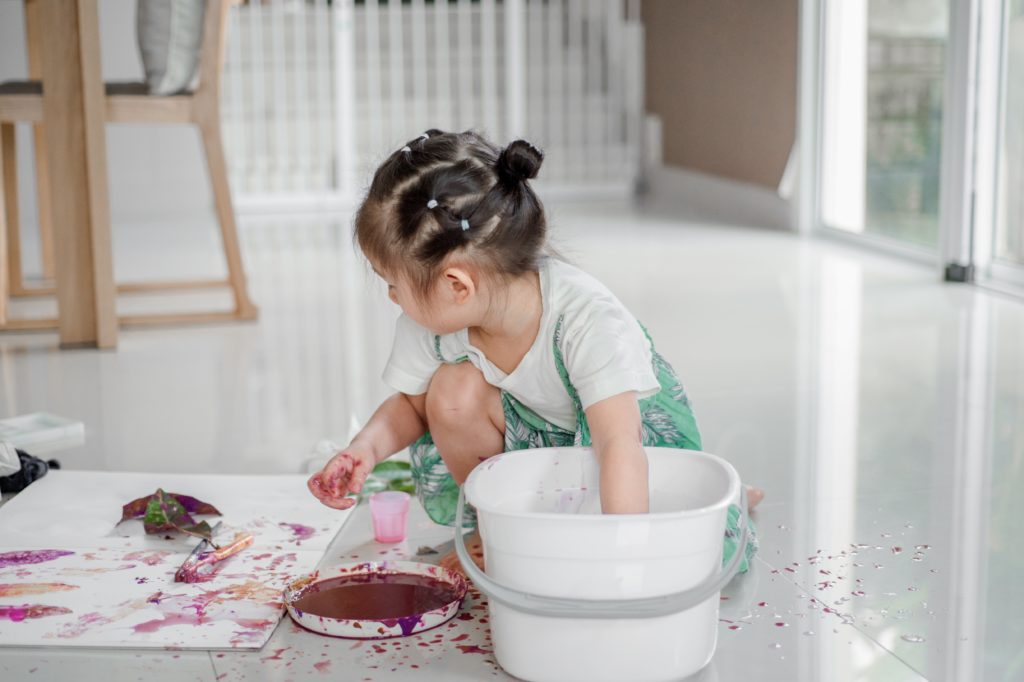Why Play Matters (And How To Play Better)

In today’s world of perpetual busy-ness, it’s easy to forget to make time for play. (Did she just say play? I’m a grown@$$ woman.) Yes, play! Think about it, as children we are encouraged to play make believe and flex our imagination because it is a fundamental part of our development. So why should we ever stop playing? The answer is, we shouldn’t, and I’ll tell you why play matters too. But first, as with most of my writing, I feel a definition is in order:
Play /plā/
- To engage in activity for enjoyment and recreation
2. rather than a serious or practical purpose.
Don’t you just love that explanation? Something in the world exists that DOESN’T relate to our next “to-do”. Better yet, the benefits are backed up by SCIENCE!

The Scientifically Proven Benefits Behind Play
For me, “play” equates to creative expression whether that’s through painting, photography, writing, decorating, or dance. I especially love the moments when I’m in the zone, thoroughly caught up in whatever I’m creating, totally disconnected from the outside world, and lose all track of time. There’s actually a name for this, which is flow. It’s a state of consciousness characterized by a feeling of absorption, skill, and fulfillment.[1] Flow was defined by Hungarian-American psychologist, Mihaly Csikszentmihalyi. Csíkszentmihályi described flow as “being completely involved in an activity for its own sake. The ego falls away. Time flies. Every action, movement, and thought follows inevitably from the previous one, like playing jazz. Your whole being is involved, and you’re using your skills to the utmost.” And why is flow so important? Because it eases anxiety, improves mood, and even slows the heart rate.
Further, Cognitive Psychologist, Dr. Scott Barry Kaufman, explains that; “the important concept of theory of mind, an awareness that one’s thoughts may differ from those of other persons and that there are a variety of perspectives of which each of us is capable, is closely related to imaginative play.” So basically, for adults, this means that we become more open-minded and less stuck in our ways. When we allow ourselves to play we loosen up and when we are loosened up, we’re less judgmental and negative. Beyond this, playing, or doing something just for enjoyment, leads to lower stress levels, improved mental health, decreased dementia, boosts the immune system, improves analytical thinking and problem-solving skills, allows room for self-expression, aids in empathy, cooperation, negotiation, and communication, AND can reduce blood pressure. Wow. Excuse me while I go paint a pretty picture.

The Reality
All day long we are bombarded with emails, calls, texts, DMs, and face-to-face conversations that are typically asking something of us. “Can you pick up some lettuce on your way home?”, “When will you have that presentation finished?”, “Did you follow up with Susie about the baby shower planning?”. I classify these asks as my “to-dos”. They go on a list and I tick them off day by day, one by one. The items on my to-do list are typically either practical or serious in nature. Sometimes there are things on the list that I REALLY don’t want to do at all! But oddly enough the things that I actually DO want to do never make an appearance on my to-do list. Can you relate? We carve out so much time to accomplish the practical agenda items that we rarely set aside time for recreation. Finding the time to play is a rare occurrence.
But why?
It is my belief that play isn’t a priority because it isn’t what society considers to be productive. How often do you have conversations with your colleagues, friends, and family about how BUSY you are, almost like it’s a contest to be the busiest? “I have 5 huge meetings coming up, a presentation to write, I have to finish planning Susie’s baby shower, I have a hair appointment, I need to get groceries, AND we go on vacation in two weeks so I have million errands to run.” Even vacation becomes a to-do and I honestly think we make it that way because we feel guilty that we’re going to go do something for the sole purpose, none other than to, ONLY because it brings joy.
The funny thing is that if we made play a priority we would actually be MORE productive…20% more productive in fact! So hopefully the question you’re asking yourself now is, “how do I make play a priority…actually, it’s been 20 years, how do I even play?”

How to Play!
Here is where I drop all citations and hyperlinks and give you my own personal opinion. Why am I qualified? Because I’m a human being (and also, I’ve tested this out).
First, you need to figure out what equates to play for you. Remember, play is an activity for enjoyment and recreation. Here are a few suggestions if it’s been awhile:
- Paint
- Do a puzzle
- Plan a vacation or even just a day trip
- Write something
- Redecorate a room in your house
- Make a floral arrangement
- Go take artsy photos around your community
- Play a boardgame
- Take a dance class
- Join a sports league
- Read a book
- Cook a new recipe or create your own
- Make a scrapbook
- Go golfing
- Take a drive
- Pack a picnic
- Knit a scarf
- Whittle a… I don’t actually know what gets whittled, but you can learn!
- Learn how to sail
- Play dolls or action figures with your kid
- Create your own wine tasting
- Make a bucket list
- Coach a little league team
- Volunteer
- Join a choir
- Go to a concert
- Build a sand castle
- Take a pottery class
- Learn how to play an instrument
- Make a quilt
- Do someone’s makeup
- Go for a leisurely bike ride
- Draw a picture
- Make a necklace
- Learn a new language
- Make a model airplane
- Bake a cake
The possibilities are endless and there is something for everyone! Now stick to the action plan below and I promise you will see positive results in a very short period of time. It’s amazing how creating space in our lives to do something we love can make us so much happier, less stressed out, and at the same time increase our productivity. Isn’t that crazy? Taking time AWAY from what we deem “productive to-dos” actually helps us tackle those much more efficiently and effectively!
So if after all of this you’re still asking yourself why you should start playing… The real question is: why did you ever stop?

Action Plan
- Find something that equates to play for you.
- Add it to your to-do list. No really, add it. If you don’t add it, you won’t do it.
- Make it a priority. If you’re like me then there’s been certain to-dos on your list for quite some time and they keep getting pushed to the back burner. Don’t let this be one!
- Add it back to the list over and over until it becomes part of your routine.
- Lose the guilt. Play is just as important as that presentation or that oil change.
[1] Csikszentmihalyi, Mihaly (1990). Flow: The Psychology of Optimal Experience. Harper Perennial Modern Classics. p. 27.








